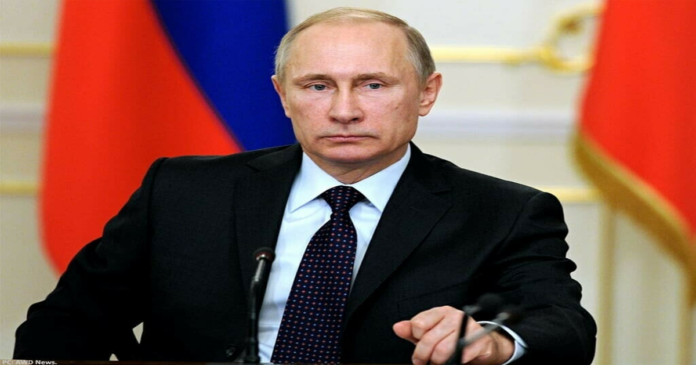Russia warned the United States, saying it should refrain from issuing threats in response to the failure of arms control accords. Moscow said it would only return to a nuclear arms reduction deal if Washington dropped its antagonistic attitude.
Russia warns the United States: The two countries with the most nuclear weapons, Russia and the United States, have both voiced sadness over the collapse of the maze of arms control agreements that aimed to curb the Cold Conflict arms race and lessen the likelihood of nuclear conflict.
In February, President Vladimir Putin declared that Russia was suspending its adherence to the New START treaty, which both Russia and the United States signed in 2010, which places a cap on the number of deployed strategic nuclear warheads. Russia made this decision in response to the situation brought on by the conflict in Ukraine.
This week, the United States announced that it would stop giving Moscow some notifications required by the treaty, such as updates on the whereabouts of its missiles and launchers, in retaliation for Moscow’s “ongoing violations” of the agreement.
Sergei Ryabkov, deputy foreign minister and head of Russia’s arms control initiative, claimed that Washington had notified Moscow of the move before making it public, so it was no surprise.
However, Ryabkov claimed that the hostile tactics of the United States were to blame for the collapse of arms control’s pillars and their current “semi-lethal” state.
Ryabkov told Russia’s three major news agencies: “Talking to the Russian Federation in the language of ultimatums does not work.
The United States has either transported many of the former architectural components in this area in a semi-lethal state or fully destroyed them due to negligence.
On Friday, U.S. national security adviser Jake Sullivan stated that the country is eager to start talks with Russia over a replacement for New START, which expires in 2026.
Russia would eventually provide a thorough analysis of Sullivan’s remarks, according to Ryabkov.
Following the 1962 Cuban Missile Crisis, which raised fears of nuclear war, the United States and the Soviet Union attempted to pause the arms race through a maze of arms control accords, finally providing each side a better awareness of their adversary’s stockpile and potential.
As the Soviet Union fell apart, Moscow and Washington, which still possess roughly 90% of the nuclear weapons in the world, reduced the number of their arsenals.
In 2011, the United States and Russia agreed to the New START Treaty, which required them to reduce the number of deployed intercontinental ballistic missiles, deployed submarine-launched ballistic missiles, and deployed heavy bombers with nuclear warheads.
All parties reached the agreement’s core parameters by February 5, 2018, and subsequently extended the treaty to February 4, 2026. In addition, restrictions were imposed on the number of nuclear warheads that bombers, missiles, and launchers can carry.
Ryabkov stated, “Our decision to suspend the START Treaty is unshakable,” according to the TASS news agency. “The United States must give up its fundamentally hostile stance towards Russia before we can return to a fully operational treaty,” the treaty’s terms state.
According to Ryabkov, one encouraging sign was that the U.S. was ready to uphold the 1998 Ballistic Missile Launch Notification Agreement.
Accordingly, he said some predictability and transparency would continue in this area, enabling us to prevent further dangerous exacerbations.

